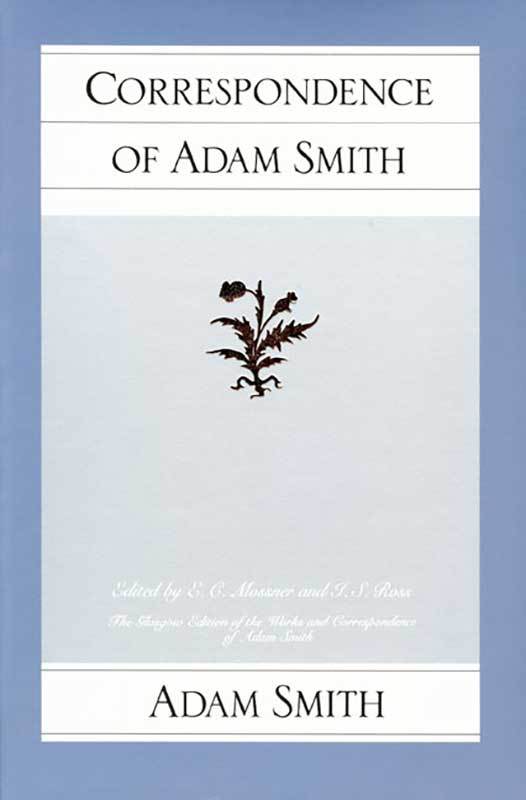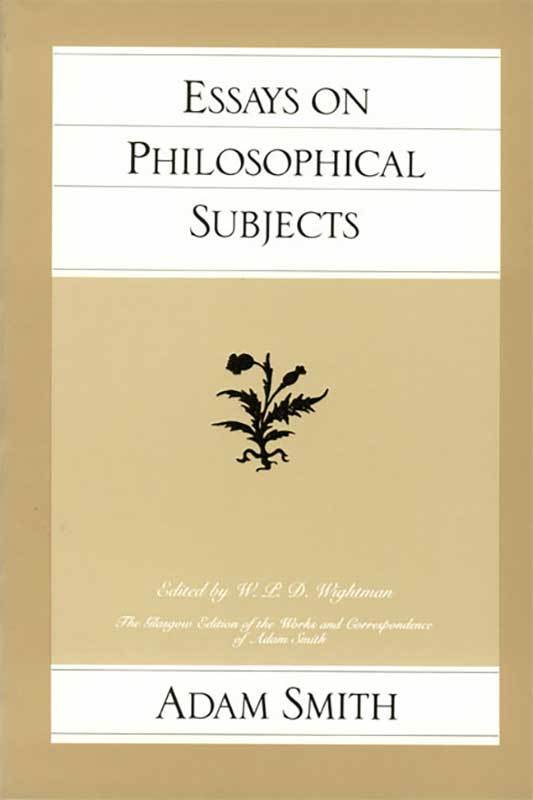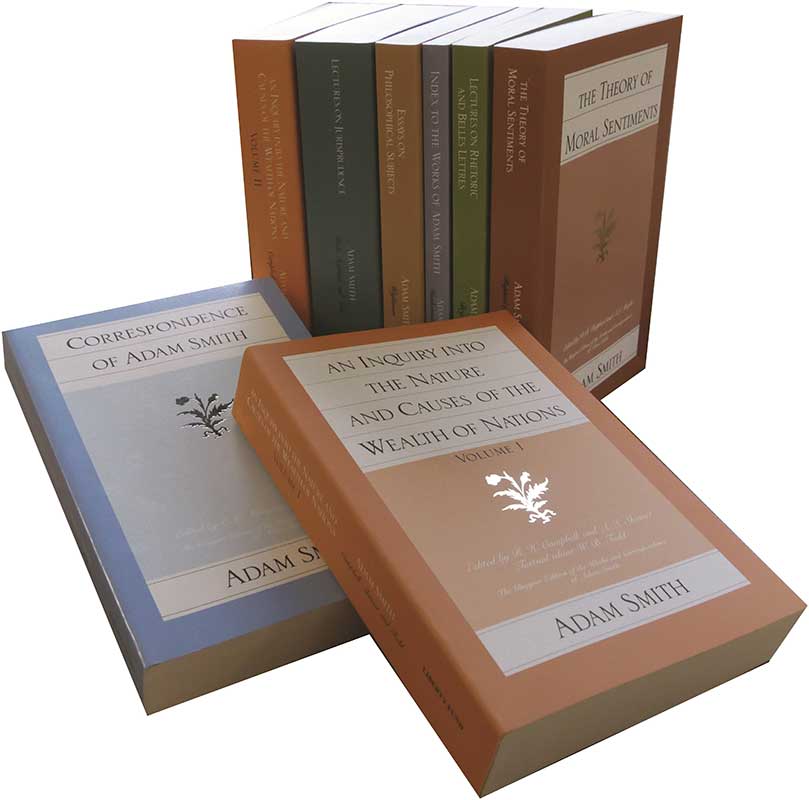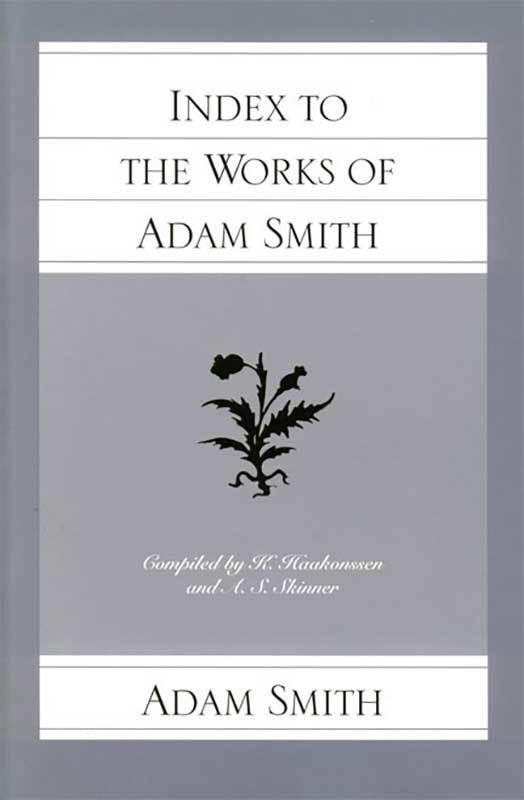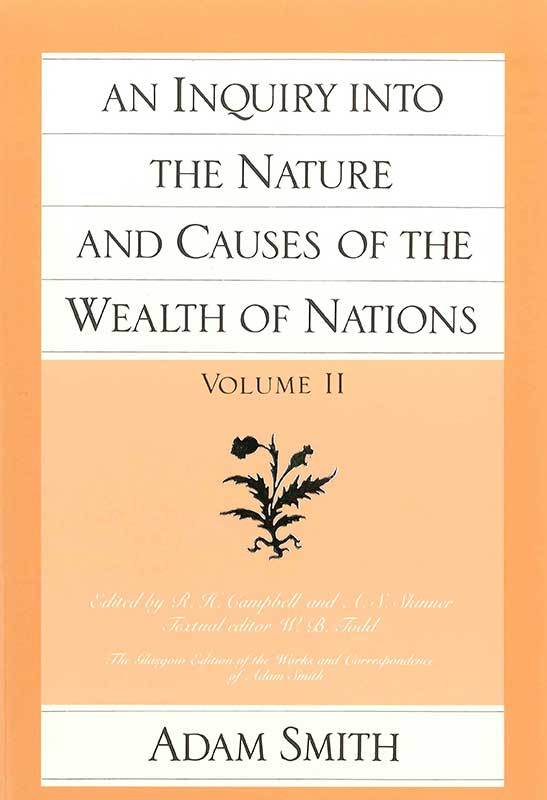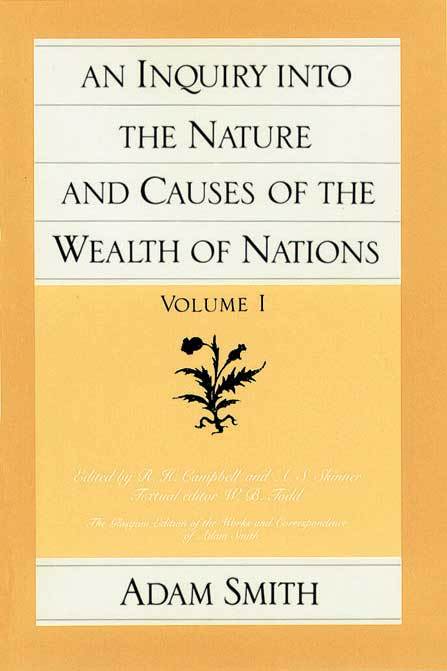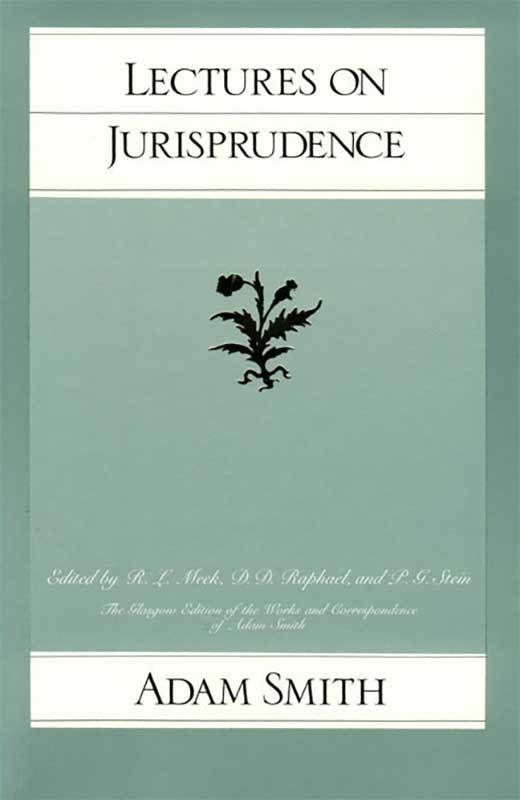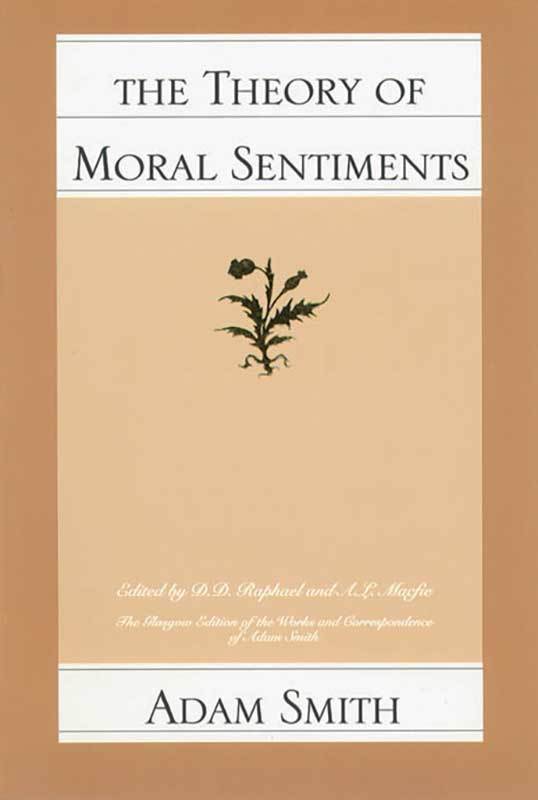The Glasgow Edition of the Works of Adam Smith
-
Correspondence of Adam Smith
by Adam Smith
/ Learn MoreThis volume offers an engaging portrait of Smith through more than four hundred letters; also included are appendixes with Smith’s thoughts on the “Contest with America” and a collection of letters from Jeremy Bentham.
-
Essays on Philosophical Subjects
by Adam Smith
/ Learn MoreReflecting Adam Smith’s wide learning and varied interests, these essays shed considerable light on his place in the Scottish Enlightenment. Included are histories of astronomy, ancient logic, and ancient physics; essays on the “imitative” arts and the affinity between music, dancing, and poetry; and a critical review of Samuel Johnson’s famous Dictionary, which Smith originally published in the Edinburgh Review…
-
The Glasgow Edition of the Works and Correspondence of Adam Smith (Paperback)
by
/ Learn MoreNow complete in seven titles/eight volumes, this series is the first uniform collection of Adam Smith’s writings. The Glasgow edition is published in hardcover by Oxford University Press. The paperback edition is published by Liberty Fund.
-
Index to the Works of Adam Smith
by Knud Haakonssen
/ Learn MoreThis comprehensive Index to the Works of Adam Smith gives students and researchers in all fields a single, unified source for locating Adam Smith’s many contributions to such diverse fields as economics, morality, philosophy, and law. The easy-to-use index helps students, readers, and researchers trace their topics of interest through all of Adam Smith’s work. The index covers The Wealth…
-
An Inquiry into the Nature and Causes of the Wealth of Nations (vol. 2)
by Adam Smith
/ Learn MoreFirst published in 1776, the year in which the American Revolution officially began, Smith’s Wealth of Nations sparked a revolution of its own. In it Smith analyzes the major elements of political economy, from market pricing and the division of labor to monetary, tax, trade, and other government policies that affect economic behavior. Throughout he offers seminal arguments for free…
-
An Inquiry into the Nature and Causes of the Wealth of Nations (vol. 1)
by Adam Smith
/ Learn MoreFirst published in 1776, the year in which the American Revolution officially began, Smith’s Wealth of Nations sparked a revolution of its own. In it Smith analyzes the major elements of political economy, from market pricing and the division of labor to monetary, tax, trade, and other government policies that affect economic behavior. Throughout he offers seminal arguments for free…
-
Lectures on Jurisprudence
by Adam Smith
/ Learn MoreSmith’s Lectures on Jurisprudence, originally delivered at the University of Glasgow in 1762–1763, presents his “theory of the rules by which civil government ought to be directed.” The chief purpose of government, according to Smith, is to preserve justice; and “the object of justice is security from injury.” The state must protect the individual’s right to his person, property, reputation,…
-
Lectures on Rhetoric and Belles Lettres
by Adam Smith
/ Learn MoreThe “Notes of Dr. Smith’s Rhetorick Lectures,” discovered in 1958 by a University of Aberdeen professor, consists of lecture notes taken by two of Smith’s students at the University of Glasgow in 1762–1763. There are thirty lectures in the collection, all on rhetoric and the different kinds or characteristics of style. The book is divided into “an examination of the…
-
The Theory of Moral Sentiments
by Adam Smith
/ Learn MoreThe Theory of Moral Sentiments, Smith’s first and in his own mind most important work, outlines his view of proper conduct and the institutions and sentiments that make men virtuous. Here he develops his doctrine of the impartial spectator, whose hypothetical disinterested judgment we must use to distinguish right from wrong in any given situation. We by nature pursue our…
Promotions
Stayed tuned for future promotions!

